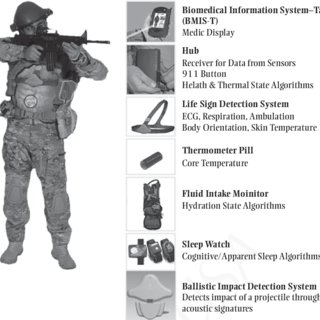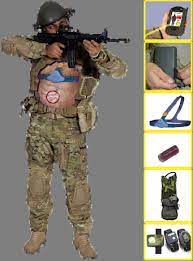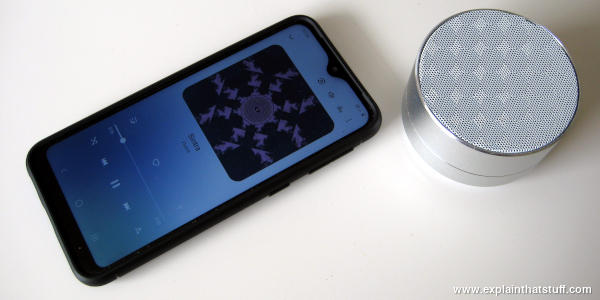Stealing Wi-Fi from Your Neighbor: A Victimless Crime? | Nolo
The downside of getting caught piggybacking on a neighbor’s wireless network would likely outweigh the upside of saving money.
By now, Internet feels like the sort of resource that “should” be free. Like water and air, it’s part of the fabric of our world; the central tool for entertainment, media, communication, and work. An ever-increasing number of homes are equipped with Wi-Fi networks that allow residents to connect. The wireless signals often extend to neighboring homes, meaning that you might be able to “see” and utilize your neighbor’s Wi-Fi network if they do not secure it; without paying a dime to an Internet Service Provider (ISP).
Given the high monthly Internet fees, free service is certainly attractive. But is borrowing or stealing a neighbor’s Wi-Fi network legal? Should you do so if you think you won’t be caught?
Legality of Piggybacking on Someone’s Wi-Fi
There is no uniform federal law that explicitly allows or prohibits using a neighbor’s Wi-Fi in the United States, though the criminal Computer Fraud and Abuse Act comes close. It applies to anyone who “intentionally accesses a computer without authorization or exceeds authorized access. ” It was first enacted in 1986, however, before Wi-Fi became prevalent. Courts have not yet been called upon to decide whether the definitions of “access” and “authorization” make common Wi-Fi theft a federal crime.
In the absence of clear federal legislation, many states have responded with legislation.
In California, for example, the 2020 Comprehensive Computer Data Access and Fraud Act (Penal Code § 502) criminalizes unauthorized access to “computer services, ” including Internet services. To be found guilty, you would have needed to knowingly use Wi-Fi in California without the owner’s permission.
And Michigan’s “Fraudulent Access to Computers, Computer Systems, and Computer Networks” law (§ 752. 795) makes it illegal to access a computer system or network without authorization.
In Florida, § 815. 06 of its statutes similarly makes it a criminal offense to access any computer system or computer network without authorization.
Whether such laws are actually enforced is another matter. In New York, for example, unauthorized use of a computer network is considered a misdemeanor, but the regulation is rarely enforced by police or prosecutors.
Nevertheless, there have been notable instances where prosecutors have enforced minor penalties against Wi-Fi thieves or “pirates. ” The state of Florida is known for arresting and charging people who stealing others’ Wi-Fi.
Overall, however, while there are likely laws on the books in your state that make piggybacking on someone’s Wi-Fi a crime, authorities rarely seem to police or enforce them.
ISP Terms of Service Could Create Friction With a Neighbor
In their terms of service, ISP companies typically prohibit the sharing of Wi-Fi connections between different households. It’s not hard to imagine why: They are losing a paying customer if you are able to simple use your neighbor’s account for free.
Many ISPs also track the bandwidth usage by each household. If the company realizes that one particular household is using double what it should be, there could be ramifications for your neighbor, like penalty fees. Indeed, your neighbor might receive a notice of the situation and eventually discover that you have been free-riding on their network.
Even if the ISP does not inform your neighbor that their household’s usage is unusually high, your neighbor might experience a slowdown in service. If tech-savvy, the neighbor might even be able to detect what devices are utilizing their network.
Beyond the potential ethical implications of this free-riding, this could create hostility with your neighbor. It’s unlike that you will be able to “play dumb” about your actions.
Beware of Data Security With Open Wi-Fi
If you find an open Wi-Fi network, be cautious. The data you transmit over the network might not be secure.
Through a technique sometimes called “sniffing, ” unencrypted data passing over the airwaves can be snatched by third parties. This could include passwords, cookies, and other small bits of information. Any financial benefits of free Internet access would quickly disappear if, for example, your identity or bank information was stolen. Unsecured Wi-Fi networks are not safe avenues for much of your Internet business.

Is neighbor’s Wi-Fi signal free for me to use? – Phys.org
Q. The other day, my Internet service went down as it does from time to time. But this particular time, I needed to check my e-mail for an important reply I was expecting. After some frustrating time passed, I happened to notice that there was a Wi-Fi signal available. I have no idea to whom the service belonged but I suspected it belonged to one of my neighbors. It had a generic name of “NETGEAR” and it was unlocked. I decided to see if it was accessible and it was. I was able to check my e-mail and download the important document that was attached to it. Now my question to you is if I did anything wrong by using my neighbor’s unlocked Wi-Fi signal to get my email and do a little web surfing afterward.
A. If you want the direct and simple answer, it’s illegal to use your neighbor’s Internet service without their consent, period. Your neighbor is paying for the service and if you are using it without their knowledge, it’s stealing.
Now you will find a wide range of arguments and reasons that you could use to try to justify/rationalize your using your neighbor’s service. Here are a couple:
• “The average person will not know you are using their Internet service when you access it via an unlocked Wi-Fi signal. ” That’s pretty much true. The only way they might suspect something is wrong is if you begin doing something that eats into their bandwidth such as downloading a large file or begin streaming audio or video. That will cause their access to become sluggish which they may notice. Then again if your neighbor subscribes to a large amount of bandwidth via a DSL or cable modem, your downloading usage may still go unnoticed. And even if they do notice it, they may just chalk it up to how flaky the Internet can be from time to time and choose not to do anything about it.
• “Your neighbors are just asking for it because they didn’t take the time to protect their Wi-Fi signal by using encryption. ” If you go down that path, the argument continues by saying if they are using the more easily broken 64-bit WEP protection, they deserve to have their signal taken. Using that same logic, then it’s OK to enter into your neighbor’s home if they don’t bother to lock their front door or lock it using an inferior lock? I think not. Just because something is there doesn’t necessarily mean you have a legal right to take it.
There’s something else you need to consider before you decide to use that Wi-Fi connection. It could be a trap. There’s a way to steal information by setting up seemingly open Wi-Fi connections. These Wi-Fi traps are better known as “Honey Pots. ” The unsuspecting person is lured into using the seemingly free, unlocked Wi-Fi service. They access their banking websites, make credit card purchases, etc. With a Honey Pot, every single thing you type is being recorded by those who want to steal from you. Your account information, passwords and anything else you type to gain access has now become compromised. So that free Internet access you thought you were getting actually comes with a very heavy price.
Now chances are the Wi-Fi signal you stumbled upon from your home isn’t a Honey Pot. Those are typically set up in public places such as airports, restaurants and other venues where the thieves have access to literally hundreds of computers every day. Your situation is probably just some neighbor who didn’t know enough to protect their Internet service. Chances are they may never know you’re using their service and your using it probably won’t even cost them anything unless they are using one of those tiered services that charge extra if they go over a certain amount of usage. But whether they notice it or not, or whether it’s locked or unlocked really isn’t the point. The bottom line is that unless you have their permission, you’re taking something that doesn’t belong to you. That’s stealing. Don’t do it.
___
(c) 2009, McClatchy-Tribune Information Services.
Citation:
Is neighbor’s Wi-Fi signal free for me to use? (2009, November 11)
retrieved 11 October 2021
from
This document is subject to copyright. Apart from any fair dealing for the purpose of private study or research, no
part may be reproduced without the written permission. The content is provided for information purposes only.

The Dangers of Borrowing Someone Else’s Wi-Fi – Small …
In addition to the murky legal waters that surround the act of acquiring an online connection by accessing an unprotected wireless network from an adjoining office or nearby business, that borrowed bandwidth may come at a high price for what you thought would provide a free connection. Think twice — or more times — before you assume it’s safe to piggyback on your neighbor’s Wi-Fi connection. The risks you take may compromise your computer or your privacy. Malware When you log in to someone else’s wireless network, you run the risk of picking up the digital equivalent of fleas from your neighbor’s carpet in the form of viruses, trojans and other types of malware. Depending on what infestation the host has picked up and how its attack vectors transfer to other systems, your supposedly innocent use of Wi-Fi bandwidth can expose you to a system-wrecking problem. Identity Theft Depending on whose Wi-Fi network you access, you may wind up providing your neighbor with personally identifiable information — your own or that of your employees, vendors or clients — when your files and passwords become visible to the owner of the network. You also may be revealing the websites you visit while you use unsecured bandwidth. This risk applies in both directions, validating the many reasons to secure wireless signals and avoid purloining your neighbor’s unprotected bandwidth. Fake Hotspot If the Wi-Fi signal onto which you piggyback turns out to be a fake hotspot, you may have stumbled onto a trap set up to steal passwords, files and other assets. Thieves can establish a source of wireless bandwidth and simply wait for the unwary to locate it. When you connect, the crooks can see everything you do and steal any data you reveal. Alternatively, the fake hotspot may be a trap set up by the authorities to nab people who are look for an online freebie. Because it’s virtually impossible to identify the source of unprotected bandwidth and thereby validate it as coming from a legitimate source, you’re better served to provide your own connection and keep everything legit. Persistent Log-Ins When you borrow bandwidth from someone who’s left the name of his network set to the default assigned by the manufacturer of his router, you set up the prospect that your smartphone automatically will connect to any future signal it sees with the same name. This can leave you vulnerable to attack and to privacy breach. To protect your mobile device from latching on to any signal it sees with the same name as a network to which it connected previously, set your device to ask permission before it joins a network connection. References Resources Writer Bio Elizabeth Mott has been a writer since 1983. Mott has extensive experience writing advertising copy for everything from kitchen appliances and financial services to education and tourism. She holds a Bachelor of Arts and Master of Arts in English from Indiana State University.
Frequently Asked Questions about is using someones wifi illegal
Is using neighbor’s WiFi illegal?
If you want the direct and simple answer, it’s illegal to use your neighbor’s Internet service without their consent, period. Your neighbor is paying for the service and if you are using it without their knowledge, it’s stealing.Nov 11, 2009
Is it OK to use someone else’s WiFi?
When you log in to someone else’s wireless network, you run the risk of picking up the digital equivalent of fleas from your neighbor’s carpet in the form of viruses, trojans and other types of malware.
Is it illegal to steal someone’s WiFi?
Many people will be surprised to hear that the answer is, “Yes.” You can be charged with a crime under California law if you “steal” (some people prefer to say “borrow”) a wireless internet signal from your neighbor or the local coffeehouse (even though arrests for this crime have been very rare).Nov 22, 2015

